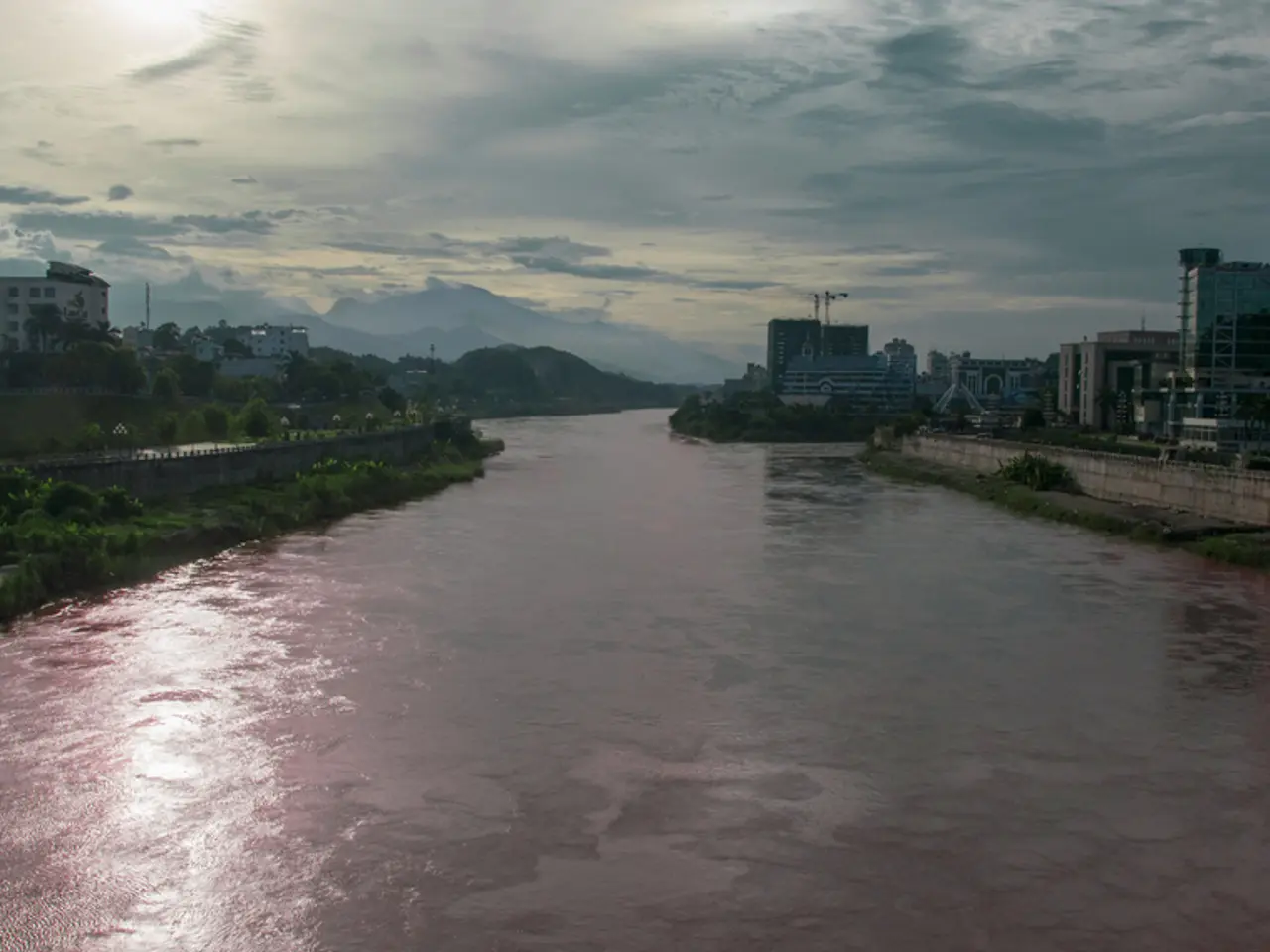Ethiopia's Grand Dam: Revolutionizing Energy and Instigating Diplomatic Turmoil
The Grand Ethiopian Renaissance Dam (GERD) has become a source of contention between Ethiopia and Egypt, with both nations viewing the project as a matter of national importance.
Egypt, heavily dependent on the Nile for 97% of its water, considers the GERD an "existential threat" due to potential water supply drops that could impact internal stability. This concern is shared by Alex Vines, who states that all-out conflict is unlikely but access to Nile waters is an existential strategic priority for Egypt.
On the other hand, Ethiopia views the dam as a means to transform its economy. Over 45% of Ethiopia's 130 million people lack electricity, and frequent blackouts occur in Addis Ababa. The dam promises to bring in foreign currency through increased electricity exports, tourism, and fishing. Moreover, it could boost industrial production, enable a shift toward electric vehicles, and supply power to neighbors.
The dam, standing at 145 meters high and nearly 2 kilometers across, holds 74 billion cubic meters of water and generates 5,000 megawatts of electricity. It is Africa's largest hydroelectric project and a national project of historic scale for Ethiopia, serving as a rare unifying symbol amid internal conflicts.
Egypt's President Abdel Fattah al-Sisi has vowed to defend Egypt's water security, while Ethiopia's prime minister, Abiy Ahmed, has repeatedly sought to reassure neighbors, insisting the GERD project poses no harm downstream. However, Egypt has been sharply critical of the dam, viewing it as a violation of colonial-era water agreements and a threat to its water security.
The standoff between the two nations has sharpened regional rivalries, leading to strengthened ties between Egypt, Eritrea, Somalia, and Sudan. Despite this, diplomatic efforts remain the preferred solution, with Abel Abate Demissie, of British think tank Chatham House, stating that the Nile is sufficient for all upstream and downstream countries if managed properly.
Attempts at mediation by various international parties have failed over the past decade. However, the only solution to the GERD standoff, according to Abel Abate Demissie, is diplomacy. Egypt is expected to intensify these efforts, while Ethiopia's government has used the dam and confrontation with neighbours as a unifying strategy, according to Alex Vines.
The GERD was inaugurated in Ethiopia, marking a significant step in the nation's development. The dam's potential economic benefits and its role as a symbol of Ethiopian unity are clear. However, the tensions with Egypt highlight the complexities and challenges of shared water resources in a rapidly changing world.
Read also:
- Lu Shiow-yen's Challenging Position as Chair of the Chinese Nationalist Party (KMT) Under Scrutiny in Donovan's Analysis
- Who is Palestine Action, the organization tied to numerous arrests within the UK?
- "Trump Criticizes EU's $3.5 billion fine on Google as Unjust, Threatens Additional Tariffs"
- Restructuring community adaptability amidst multiple concurrent crises








